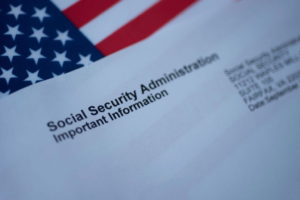USCIS Mulls Changes to the H-1B Lottery System
Dec 7, 2018
Dallas, TX (Law Firm Newswire) December 7, 2018 – U.S. Citizenship and Immigration Services (USCIS) is planning three potential changes to the H-1B visa lottery system. The planned changes could have significant impact on the way USCIS processes H-1B petitions and result in H-1B petitions for more highly educated beneficiaries winning the H-1B lottery in greater numbers.
The three key changes are: a requirement for employers to pre-register prospective H-1B workers, a prioritization of petitions based on compensation and skill, and a switch in the order of the two-part H-1B lottery. The agency has yet to announce a formal proposal regarding these changes.
The first anticipated change would require employers to electronically pre-register potential H-1B workers and submit H-1B petitions to USCIS only after winning the lottery. Under the current system, companies must file the entire petition complete with supporting evidence and then await the lottery result.
Electronic pre-registration would result in less work than filing a complete H-1B application, but there are many issues about the process that USCIS would have to resolve. As part of its proposal, the Department of Homeland Security (DHS) is also considering prioritizing visa allocations for H-1B workers based on their skills and salary levels. DHS did not indicate how it would decide which applicants are the most skilled.
“While the concept of pre-registration of employer H-1B petitions, and the submission of actual H-1B petitions later on only by lottery winners could be a lottery improvement, how much information would be required for employer pre-registration, how long selected employers would have to submit a petition, together with a host of other implementing details would need to be worked out,” said Stewart Rabinowitz of the Dallas and Frisco, Texas law firm of Rabinowitz & Rabinowitz, P.C. “Significantly, though, prioritizing H-1B petitions in a lottery for the most skilled and highest paid workers in line with the Administration’s ‘Buy American Hire American Executive Order’ would almost certainly result in litigation against USCIS for acting beyond its statutory mandate.”
Under the third proposed change, the Trump administration would reverse the current setup of the two-part lottery system. Currently, the 20,000-visa master’s degree lottery is held first and any unselected petitions from the first round are added to the 65,000-visa general bachelor’s degree pool. Instead, all eligible H-1B applicants would first be placed in the general pool of 65,000 visas, regardless of their degrees. Upon reaching the cap limit, any remaining petitioners with advanced degrees from U.S. universities would be directed to the second lottery for 20,000 visas.
USCIS believes the changes would result in a substantial rise in the number of visas awarded to H-1B petition beneficiaries with advanced degrees as the changes would provide such beneficiaries with two solid opportunities at winning the lottery. It would also likely reduce chances for workers with bachelor’s degrees and affect hiring for entry-level jobs.
By Appointment Only
Three Galleria Tower
13155 Noel Road, Suite 900
Dallas, TX 75240
http://www.rabinowitzrabinowitz.com
- USMCA Preserves NAFTA’s Immigration Provisions
The United States has agreed to a new trilateral trade deal with Mexico and Canada that will replace the North American Free Trade Agreement (NAFTA), according to a September 30, 2018, announcement. The immigration provisions contained in NAFTA have been repackaged as the United States-Mexico-Canada Agreement (USMCA) but appear to largely remain the same. The … - Immigration Court Backlog Continues to Grow
A recent analysis of U.S. immigration court data has revealed a dramatic increase in the number of pending cases and average hearing wait times across many states. According to the Transactional Records Access Clearinghouse (TRAC) of Syracuse University, the backlog has grown by 38 percent nationwide since President Trump assumed office. As of July 31, … - TRAC reports on zero tolerance at the southern border
A recent analysis of immigration data by Transactional Records Access Clearinghouse (TRAC) at Syracuse University in New York has raised questions about the effectiveness of the Trump Administration’s zero tolerance approach to illegal border entries into the United States. On April 6, 2018, the government announced a new zero tolerance policy that called for the …




